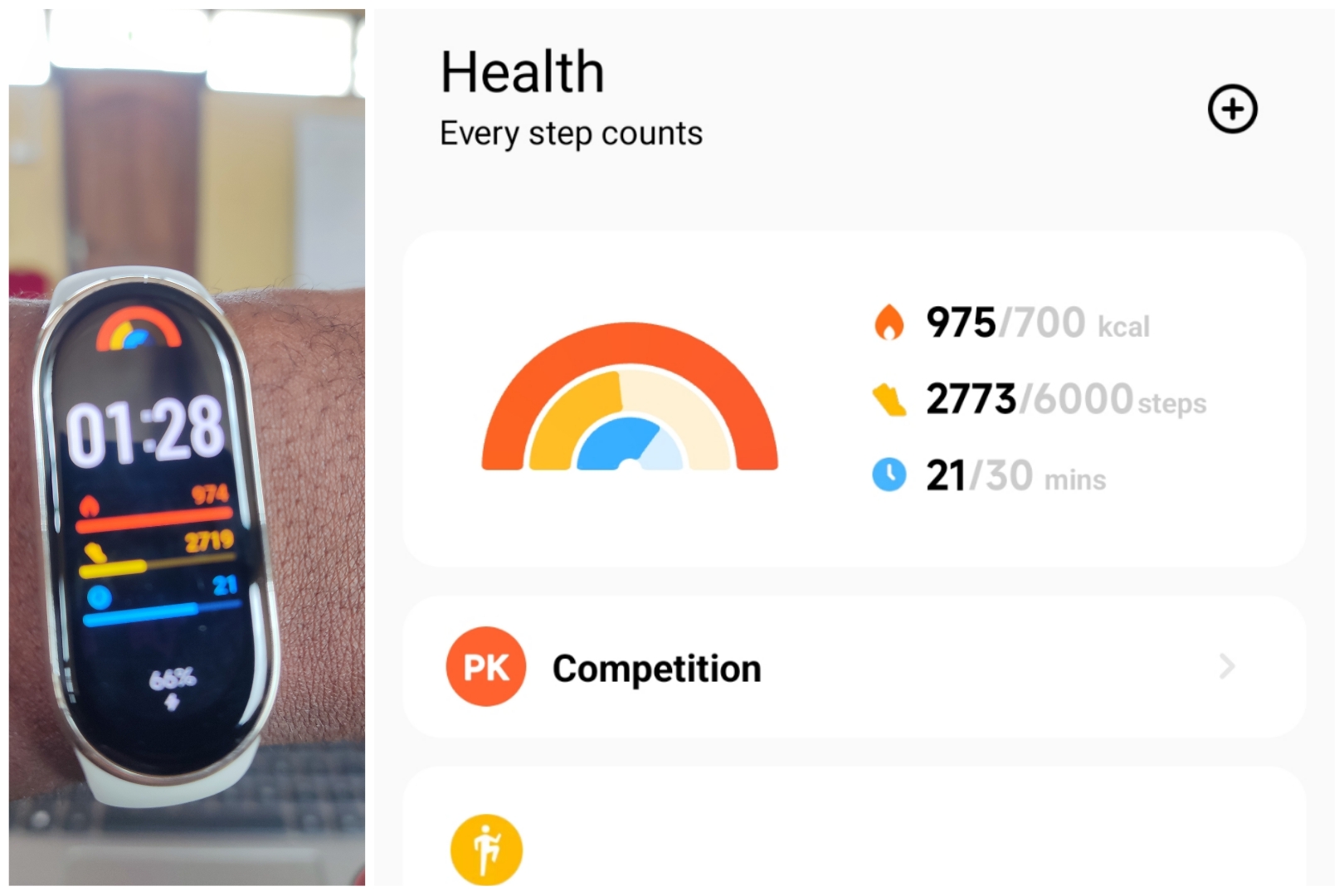What Role Do Smart Watches Play in Fitness and Healthy Lifestyle: Recently I bought a smartwatch just to experience the hype that comes with it.
I’ve not been a fan of it because I don’t see why reading notifications from a tiny screen made sense.
Was I disappointed? No. This is because Smart Watches of today aren’t just limited to reading notifications and answering calls.
It would surprise you to know that these small devices pack a ton of useful features. I am currently testing the Mi Fitness band 8 which has been instrumental in my weight loss and fitness journey.
So Do You Need A Smart Watch?

That all depends on you. If you have the money to spare then it’s worth getting one. Ever since I started experimenting with my fitness band I have become more conscious of certain health metrics I would often ignore.
I am pushed to ensure I get quality sleep because the band can track that. Most bands have that functionality.
Also, the pedometer built inside pushed me to achieve my daily step count target because I got to monitor it in real time.
The feature to monitor heart rate and its corresponding calories burned is another useful feature that you can take advantage of to ensure your workouts are efficient.
The above-mentioned features and more are present in most smart watches today so it doesn’t matter the brand. The accuracies of the metrics may be different. Some are more accurate than others.
Just go with a trusted brand you are comfortable with.
What Role Do Smart Watches Play in Fitness and Healthy Lifestyle

Now that we have a fair idea of how using a smartwatch can help you to achieve your desired fitness results, let’s delve deep into the useful features you will benefit from a smartwatch.
1. Activity Tracking: Smartwatches serve as personal fitness trackers, monitoring various metrics such as steps taken, distance traveled, and calories burned. This real-time feedback helps users stay accountable and motivated to reach their daily activity goals.

Read Also: 10 Effective Strategies for Alleviating Back Pain
2. Heart Rate Monitoring: Many smartwatches have heart rate sensors, allowing users to monitor their heart rate continuously throughout the day and during workouts. This feature is invaluable for gauging cardiovascular health and optimizing workout intensity.

3. Workout Guidance: Smartwatches offer many workout modes tailored to different activities, from running and cycling to swimming and yoga. These devices provide real-time coaching and feedback to help users maintain proper form, optimize performance, and avoid injury.
4. Sleep Tracking: Quality sleep is crucial for overall health and well-being. Smartwatches with sleep-tracking capabilities monitor sleep patterns, including duration, stages, and quality. By analyzing this data, users can identify factors affecting their sleep and make necessary adjustments to improve sleep hygiene.

5. Stress Management: Some advanced smartwatches feature stress-tracking functionalities, utilizing heart rate variability (HRV) data to assess stress levels throughout the day. Users can learn to manage stress more effectively and promote mental well-being through guided breathing exercises and mindfulness prompts.
Read Also: The Scientifically Proven Ways to Lower Bad Cholesterol
6. Nutritional Insights: Integrating with companion mobile apps, smartwatches enable users to track their dietary intake and hydration levels. By logging meals and water intake, users gain insights into their nutritional habits and can make informed decisions to support their fitness and health goals.
7. Motivational Features: Gamification elements such as badges, challenges, and leaderboards add an element of fun and competition to fitness tracking. Smartwatches celebrate milestones, encourage progress, and foster a sense of community among users, motivating them to stay active and committed to their goals.
8. Integration with Ecosystems: Smartwatches seamlessly integrate with other health and fitness ecosystems, including fitness apps, health platforms, and wearable accessories. This interoperability enables users to consolidate data from various sources, gain deeper insights into their health metrics, and make holistic lifestyle changes.
9. Remote Health Monitoring: With advancements in sensor technology, smartwatches are increasingly capable of monitoring vital signs and detecting anomalies indicative of health issues. This remote health monitoring functionality allows users to proactively manage their health and seek medical attention when necessary.
10. Lifestyle Integration: Beyond fitness tracking, smartwatches offer a range of lifestyle features such as notifications, music control, navigation, and contactless payments. By seamlessly integrating these functionalities into daily life, smartwatches empower users to stay connected, organized, and focused on their well-being.
The decision to use a smartwatch depends on you and depends on your budget.
Some people can organize themselves to the point that they do not need one.
I have adapted to it because it’s a new thing for me and I want to get abreast with technology. It has undeniably helped, and I would recommend anyone who struggles to motivate themselves or keep themselves accountable to their fitness journey to try and track these health metrics.
Currently, it serves me best when tracking my sleep duration.




One thought on “Smart Watches and Their Role in Fitness and Healthy Lifestyle”
Comments are closed.